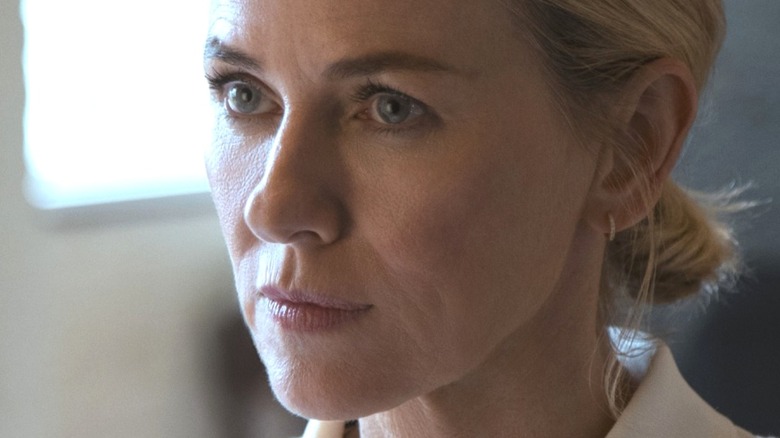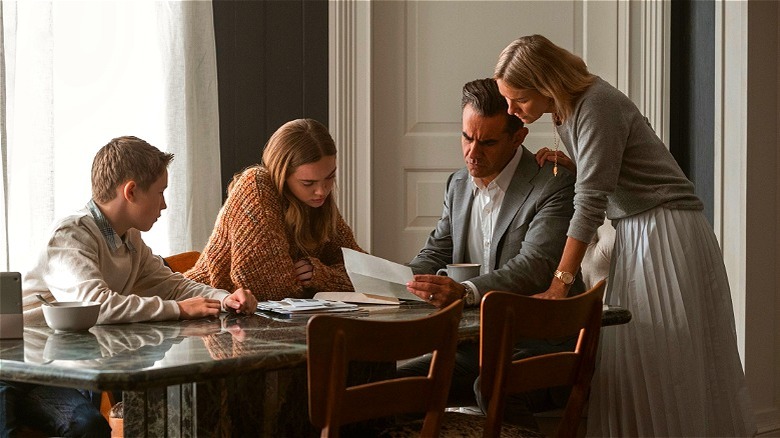How Accurate Is Ryan Murphy's The Watcher?
Ryan Murphy has become notorious for the dark subject matter in FX's "American Horror Story," but recently he has expanded his brand to real-life figures. The writer has sensationalized Bette Davis (Susan Sarandon) and Joan Crawford (Jessica Lange) in "Feud," he's tackled real court cases and scandals with "American Crime Story," and his recent exploration of Jeffrey Dahmer has gotten some bad backlash.
Not to be deterred, Murphy again tackles true crime in Netflix's "The Watcher." Based on the disturbing case investigated in The Cut, "The Watcher" follows new homeowners Dean (Bobby Cannavale) and Nora Brannock (Naomi Watts) as they move into the coveted 657 Boulevard house in Westfield, New Jersey. While at first the family only seems to encounter some negligible harassment from new neighbors, they are shocked when they get a collection of disturbing letters from an anonymous source only known as The Watcher. With the safety of their children on the line and no help from local law enforcement, Nora and Dean become obsessed with finding out who is behind these mysterious threats. The letters that detail longing for the blood of children are so specific and creepy that they have to be from real life. But the question remains: Just how realistic is "The Watcher" to its corresponding real-life events?
The Watcher is more fantasy than fact
Some of the most idyllic locations are the settings for some of the seediest occurrences. Even perfect suburbia has its darkness. That is the subject of Netflix's "The Watcher" and even the true events that inspired the series. Yes, in 2014, a New Jersey family was plagued with threatening letters from a source that was never discovered. But as Entertainment Weekly dissected, that is about where the similarities end. The names of the real family members Derek and Maria Broaddus were changed to Dean and Nora Brannock. From there, events were expounded upon, altered, and sometimes outright invented. One major deviation was the inclusion of John Graff (Joe Mantello), who was a reference to family killer John List (via Entertainment Weekly). The cases of List and the Broadduses are not related whatsoever. This was purposeful on Ryan Murphy's part, as Bobby Cannavale reported in one interview.
"I'm not really playing [Dean Broaddus]," Cannavale confessed to The Hollywood Reporter. "The story is based on that story, but really, it's a Ryan Murphy creation. [...] The story itself is just a jumping-off point for what he wants to do." This may be a work of genius on Murphy's part. By changing the names and spinning off the series into fantasy land, it does not resemble the story it is based on. Without adhering to real-life events, the series is far less likely to be subject to the backlash he has received in the past.

